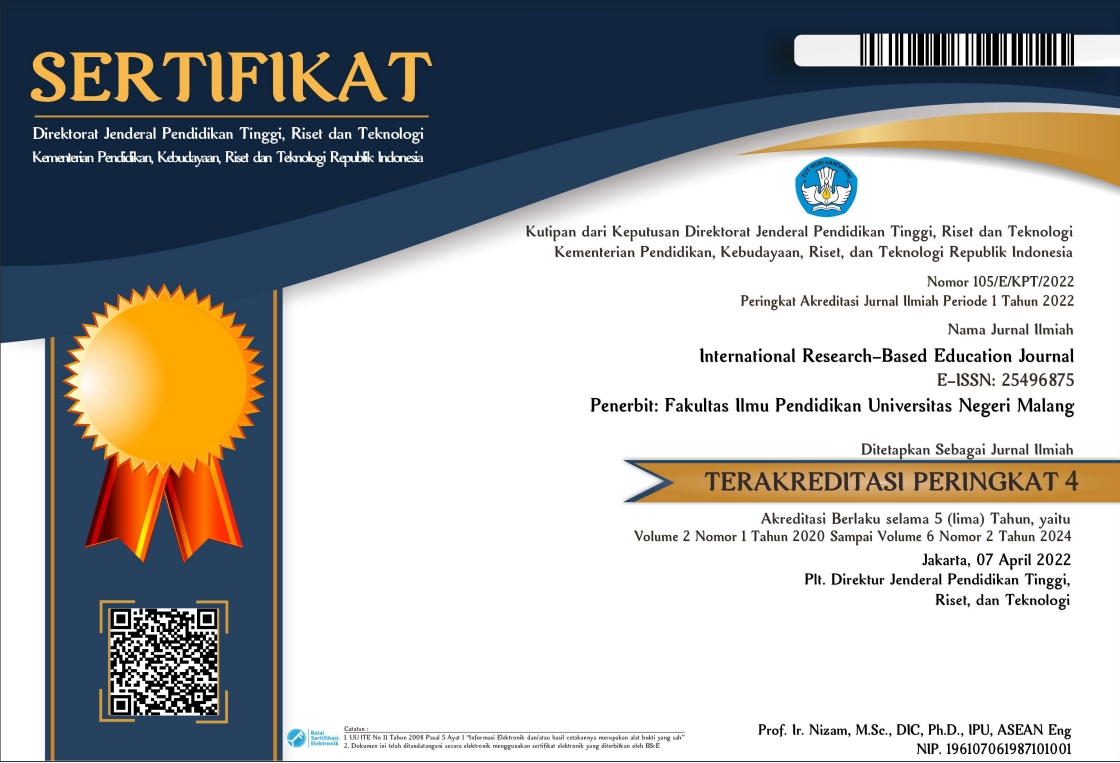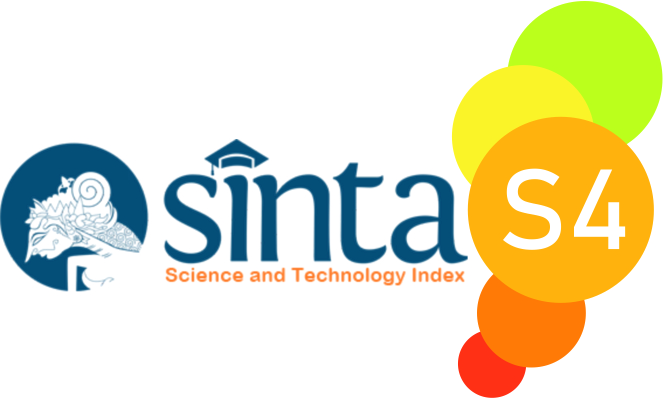INSTRUCTIONAL LEADERSHIP BEHAVIORS OF ISLAMIC SCHOOL PRINCIPALS IN DEVELOPING THE PERFORMANCE OF THE TEACHERS
Abstract
The current study aimed at describing the instructional leadership behaviors of Islamic school principals in developing the teachers' performance. There were four focuses which were (1) promoting the vision and the mission, (2) reforming the teaching and learning, (3) implementing the teaching and learning practice, (4) creating positive learning climate. This study utilized qualitative approach with multi-site research design. The data was collected by using in-depth interview, observation, and documentation. The data analysis was done by using on-site and cross-site data analysis. To check the credibility of the data, triangulation technique, member check and peer discussion were used. Meanwhile, the audibility check was done by the advisor. The research showed that the principals: (1) promoted the vision and the mission by (a) communicating with the society and realizing them into the goals of the Islamic schools, (b) implementing them into the programs and the policies that were especially related to the teaching and learning, (2) reformed the teaching and learning by: (a) organizing the teaching and learning through participative and innovative management, (b) having high expectations in teachers' performance and the students' achievement, (3) improved the teaching and learning practice by (a) diagnosing the teaching and learning problems through class supervision and in-service programs depending on the teachers' needs, (b) used the students' learning outcome to improve and to encourage the teachers to utilize the learning sources optimally, (4) creating positive learning climate: (a) created working mechanism which made formal and informal discussion about teaching and learning, (b) created the reward system for the achievements.
Keywords: instructional leadership behaviors, principals of Islamic schools, teachers’ performance
Keywords
Full Text:
PDFReferences
Arifin, I. (1998). Strategi Pengelolaan MI Unggulan: Analisis Evaluatif dalam Meningkatkan Kemampuan Swakelola MI Unggulan. Makalah Seminar Nasional. Malang: MIN Malang I, 20 – 13 Oktober.
Guba, E.G., & Lincoln, Y.S. (1981). Effective Evaluation: Improving the Usefulness of Evaluation Result Through Responsive and Naturalistic Approaches. San Francisco, California Jossey-Bass. Inc., Publisher.
Hariwung, A.J. (1989). Supevisi Pendidikan. Jakarta: Departemen Pendidikan dann Kebudayaan, Direktoran Pendidikan Tinggi, Proyek Pengembangan Lembaga Pendidikan Tenaga Kependidikan.
Moleong, L.J. (1999). Metodologi Penelitian Kualitatif. Bandung: Remaja Karya.
Muhaimin, Sutiah dan Sugeng. (2009). Manajemen Pendidikan Aplikasinya dan Penyusunan Rencana Pengembangan Sekolah/Madrasah. Jakarta. Kencana Prenada Media Group.
Nadler, L. (1982). Designing Training Programs (The Critical Events Model). California: Addison-Wesley Publishing Company.
Nasution, S. 1988. Metode Penelitian Naturalistik-Kualitatif. Bandung: Tarsito.
Pudjirahadjo. (1992). Metode Kualitatif dan Kuantitatif dalam Penelitian Ilmiah. Malang: Universitas Brawijaya.
Sinamo, J.H. Agustus (1998). Menciptakan Visi Inovatif (In Search of Powerfull Vision) Manajemen: Majalah Bagi Manajer, Nomor120:4-9.
Smith, W.F., & Andrews, R.L. (1989). Instructional Leadership: Haw Principals Make A Difference. Washington, DC: ASCD Publication.
Soegiono. (1997). Perangkat Kegiatan Belajar-Mengajar (KBM) dan Upaya Kepala Sekolah Agar Setiap Guru menyiapkan Perangkat Kegiatan Belajar-Mengajar (KBM). Makalah disajikan dalam Rapat Kerja Kepala SMP-SMA Negeri dan Swasta se Jawa Timur di Batu Malang, Juli 1997.
Yin. Robert K. (1996). Studi Kasus: Desain dan Metode. Terjemahan oleh M. Djauzi Mudzakir. Jakarta: PT. Raja Grafindo Persada
Tilar, H.A.R. (1999). Beberapa Agenda Reformasi Pendidikan Nasional dalam Perspektif Abad 21. Magelang: Indonesia Tera.
Weil, M. (1978). Personal Models of Teaching. New Jersey: Prentice Hall. Inc. Englewood Cliffs.
DOI: http://dx.doi.org/10.17977/um043v1i1p%25p
Refbacks
- There are currently no refbacks.

This work is licensed under a Creative Commons Attribution-NonCommercial-ShareAlike 4.0 International License.










1.png)


